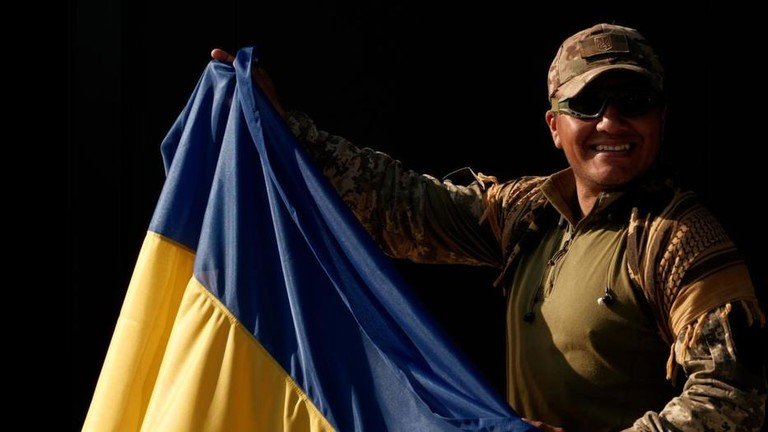The new law is aimed at tackling a shortage of commanding staff in Kiev’s armed forces
Ukrainian leader Vladimir Zelensky has signed a law allowing foreign mercenaries to serve as officers in the country’s military during the conflict with Russia.
The Ukrainian parliament, the Verkhovna Rada, passed the relevant legislation on October 10.
On Friday, it was signed into law by Zelensky, according to the website of the Ukrainian government.
The move means that foreigners who have a contract with the Ukrainian military can now become not only privates or sergeants, but also have positions of authority in the army, regardless of their citizenship.
When the law was being discussed in September, the deputy head of the parliamentary committee on national security, defense and intelligence, Egor Chernev, explained that it was needed to address the lack of commanding staff in the armed forces.
“We all understand the current situation with the officer corps. There are problems. Indeed, we have a shortage,” Chernev told the broadcaster Rada at the time. There is interest among former officers from foreign countries in joining the Ukrainian forces, he insisted.
Russia’s Foreign Ministry spokeswoman Maria Zakharova suggested in a post on Telegram on Saturday that Zelensky signed the law “so that foreign commanders could finish off the Ukrainians more actively, by throwing them into ‘meat assaults.’”
“A Ukrainian [officer] might feel sorry for another Ukrainian and not send him to a certain death. But this is not what Zelensky is being paid for,” she wrote.
In March, the Russian Defense Ministry said that at least 13,387 mercenaries from foreign countries had arrived in Ukraine since the escalation between Moscow and Kiev began in February 2022. Most of them were from Poland (2,960), Georgia (1,042), the US (1,113), Canada (1,005) and UK (822).
According to the ministry, at least 5,962 of those soldiers of fortune have been killed in the fighting with the Russian forces.
This spring, faced with manpower shortages, mounting losses and military setbacks in the conflict with Russia, Ukraine lowered the draft age from 27 to 25 and significantly tightened mobilization rules, obliging potential recruits to report to conscription offices for “data validation,” which often means a trip straight to the front.
Multiple videos have popped up on social media in recent months, showing conscription officers trying to snatch people in the streets, gyms and shopping malls.



